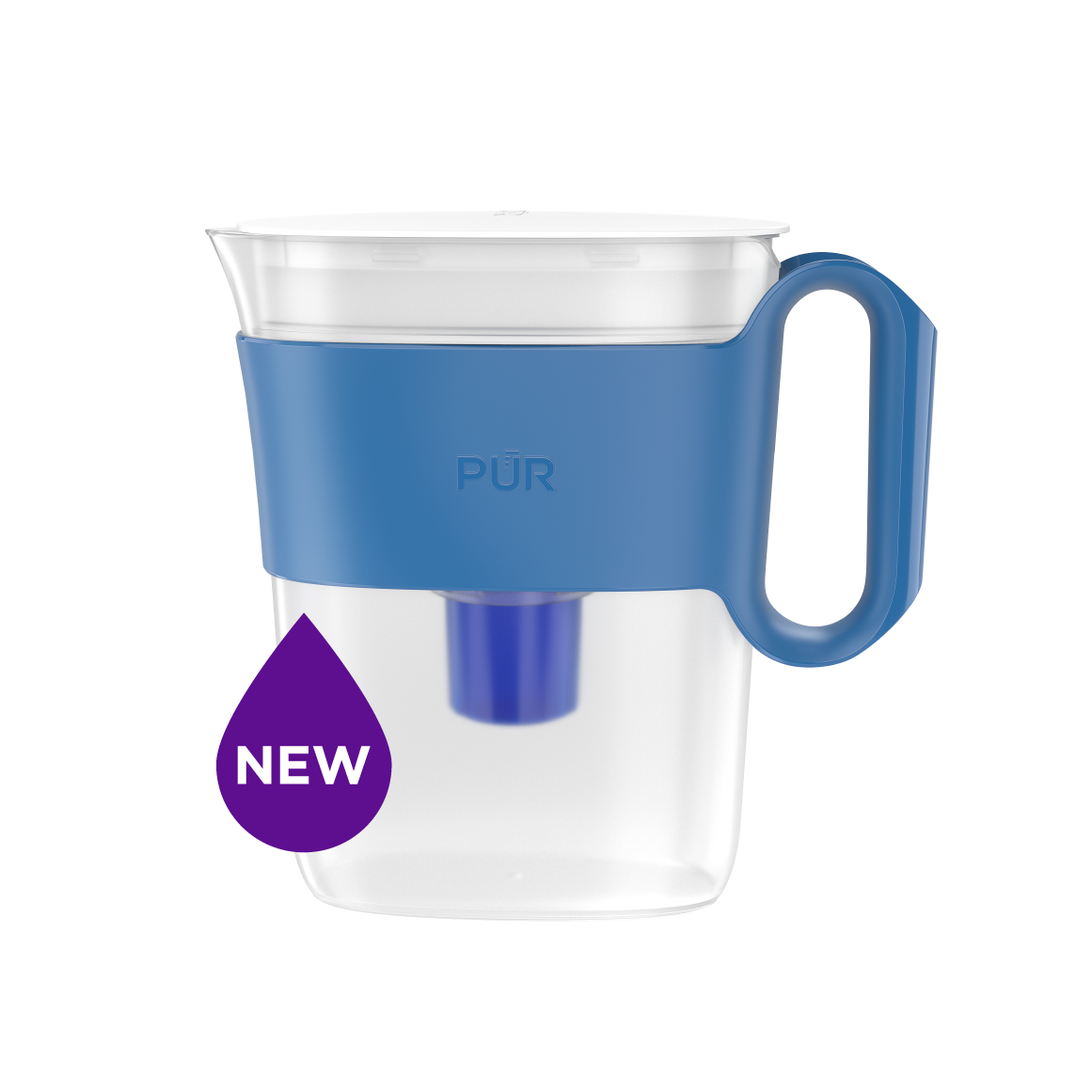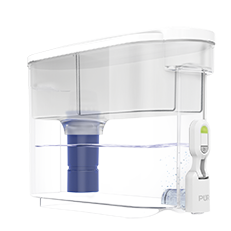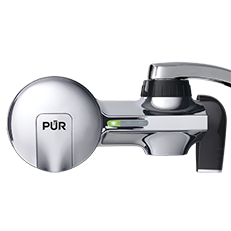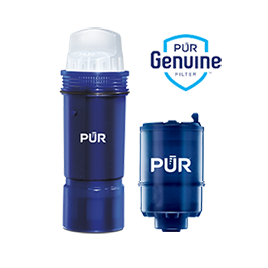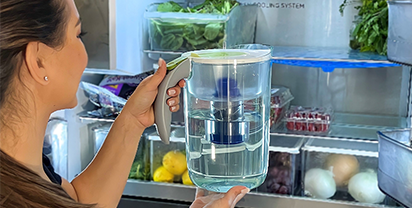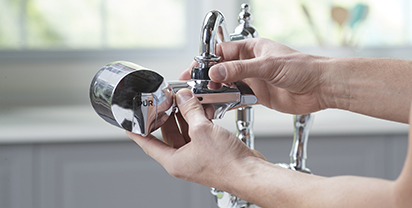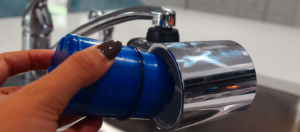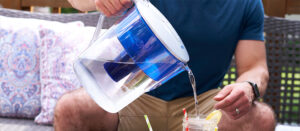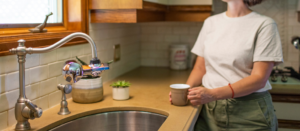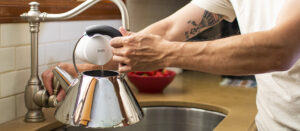Is filtered water cleaner and better tasting than tap water? Here’s a go-to guide for making the most of your H2O.
We all know that drinking water regularly is integral to our health and wellness — and with good reason! Every cell in our body needs water in order to function so staying hydrated is a must. But if the water you’re drinking isn’t as clean-tasting as you’d like, it’s unlikely you’re going to get enough daily sips. Thankfully, there are a variety of filtration systems to make your water a little cleaner and a whole lot more palatable to drink. Read on to discover what makes filtered water the best drinking choice and why it’s smart thinking to filter your water rather than to go with the flow.
What is filtered water?
Sure, many of us prefer the taste of filtered water, but what exactly are we drinking? Filtered water is groundwater or tap water that has undergone a process to remove impurities and a variety of physical and chemical contaminants in an effort to make the water cleaner for drinking (not to mention far more refreshing). These chemical and physical contaminants include certain bacteria, fungi, parasites, copper, lead, and other unwelcome pollutants. In most cases, the filtration process also works to remove chlorine in an effort to improve the water’s overall taste. However, unlike distilled water, filtered water isn’t completely free of particulates. Filtered water may still contain healthy minerals that are safe to consume and are actually beneficial to your health.
How is water filtered?
During a traditional filtration process, water flows through groupings of different materials, including gravel, sand, and activated carbon. Think of these filters like tiny nets trapping unwanted water invaders. These filters work to absorb and/or dissolve unwanted particles along with neutralizing bad odors.
But some filtration systems, like PUR, go a step further to include filters made from activated carbon for even smaller pores for the water to pass through. PUR filters also include ion exchange materials for trapping unwanted metals. As water flows through the filter, physical and chemical contaminants are adsorbed by the carbon while heavy metals like lead and mercury are adsorbed by the ion exchange materials.
Is filtered water cleaner than tap water?
Filtered water is generally cleaner to drink than tap water. However, that is not to say that tap water is unsafe to drink. Generally, tap water is safe to drink, but not all tap water is created equal. The safety of your tap water depends on its source.
Should I filter my own water or drink bottled water?
Whether to drink filtered water vs. bottled water is more of an environmental-conscious and cost decision opposed to a decision regarding taste or safety. Both bottled water and filtered water undergo processes to remove unwanted contaminants, which can range according to water bottle brand or individual filtration system. However, plastic water bottles account for a sizable portion of our planet’s daily plastic consumption. In fact, humans use about 1.2 million plastic bottles per minute in total and purchase about 50 billion plastic water bottles per year. Plus, buying bottled water on a regular basis can really add up from a cost perspective.
Alternatively, drinking filtered water in a glass or reusable water bottle can save just one person about 156 plastic bottles
What is the best way to filter water?
The two most common at-home water filters are faucet filtration systems and pitcher filtration systems. Both are effective ways to reduce physical and chemical contaminants and improve the taste of tap water, but choosing the best water filter for you depends on your individual needs. Consider what makes the most sense for your space, your lifestyle, and (perhaps most importantly) what filtration system you can properly clean and maintain so it’s as effective as possible.
Faucet Filtration vs. Pitcher Filtration
Here’s a rundown on the benefits of these popular water filtration methods:
Faucet Filtration Benefits
- Effective in filtering out unwanted chemical and physical contaminants
- Convenient, no-fill design
- Easy to install
- Doesn’t take up refrigerator space
- No wasted water
- Some faucet filters can go up to 3 months before needing to be replaced
Try: PUR Plus Faucet Filtration System
Pitcher Filtration Benefits
- Effective in filtering out select chemical and physical contaminants (see our Performance Data Sheet for a complete list)
- Easy to clean
- Can be refrigerated for cold water
- Easy to use
- Some pitcher filters can go up to 2 months before needing changing
Try: PUR 11 Cup Pitcher
How do I clean my water filter?
Keeping your water filtration system clean with a functioning filter is the best way to ensure it is performing its best. For pitcher filters, the best way to do this is to wash and clean the pitcher at least every other week. Many pitchers are dishwasher safe, but you can also wash your pitcher by soaking it in warm, soapy water for about 15 minutes before rinsing clean. Replace the filter about every 2 months or according to the pitcher’s instructions.
Faucet filters should be cleaned and examined monthly. Detach the filtration system from the faucet and empty any filter debris from the cartridge by tapping it over a wastebasket. Soak the filter canister in mild dish soap mixed with water for about an hour before rinsing and leaving to air dry. Reconnect to your faucet and turn the water on for about 5 minutes to flush out any remaining debris. Faucet filters should be replaced about every 3 months or according to the filter’s instructions.
Whether you’re concerned about cleaner drinking water or just want better-tasting H20, there’s no question that filtered water checks the boxes. But that doesn’t mean you have to up your spending on store-bought bottled water or expensive, professionally installed filtrations systems. With simple, at-home water filtration, you can easily convert everyday tap water into delicious, thirst-quenching refreshment you can enjoy.
Sources:
https://www.healthline.com/nutrition/purified-vs-distilled-vs-regular-water#TOC_TITLE_HDR_2
https://www.allrecipes.com/article/what-is-filtered-water/
https://www.npr.org/sections/thesalt/2018/07/27/632393234/which-water-is-best-for-health-hint-dont-discount-the-tap
https://www.cdc.gov/healthywater/drinking/public/water_treatment.html#:~:text=During%20filtration%2C%20the%20clear%20water,parasites%2C%20bacteria%2C%20and%20viruses
https://www.popsci.com/how-pur-water-filtration-works/#:~:text=PUR%20uses%20activated%20carbon%20that’s,fill%20up%20the%20surface%20area
https://www.earthday.org/fact-sheet-single-use-plastics/
https://waterfilterguru.com/how-to-clean-pur-water-filter-faucet-mount/

